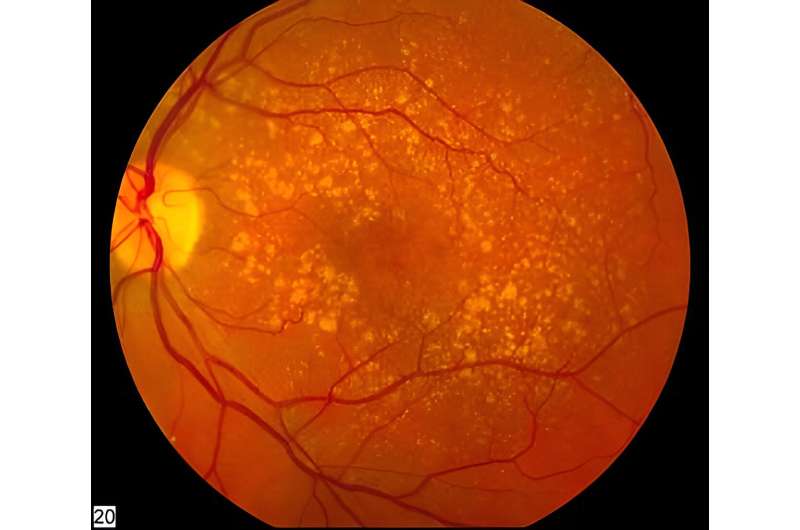A team of medical researchers from Case Western Reserve University School of Medicine and the Cleveland Clinic's Center for Ophthalmic Bioinformatics has found further evidence that regular consumption of melatonin reduces an older person's chances of developing age-related macular degeneration (AMD), a disease that often leads to blindness.
In their study, published in the journal JAMA Ophthalmology, the group researched case histories of 200,000 older patients looking for an association between regular consumption of melatonin and the development of AMD.
Prior research has shown that as they age, many people begin to experience degeneration of the macula, a central part of the retina.
Currently, approximately 11 million people in the U.S. alone are experiencing vision loss due to AMD. Medical scientists have been looking for ways to prevent or stop the progression of the disease for many years. Some progress has been made, but there is still no cure.
In recent years, research teams have been finding that people taking melatonin supplements may be less likely to develop the condition. In 2020, one team found that the higher levels of melatonin can prevent retinal damage due to AMD.
The following year, another team found that patients with AMD tended to have lower-than-average amounts of melatonin in their blood and tears. In this new effort, the research team looked at the medical records of 200,000 older people covering the years 2008 to 2023 looking for an association.
They found that out of 121,523 patients aged 50 years or older who had no evidence of AMD, many were regular users of melatonin supplements. They also found that many patients who began taking melatonin supplements after developing AMD experienced slower degradation than patients who did not begin to take the supplements.
Melatonin is a hormone that is produced naturally in the brain; it has been strongly associated with the sleep cycle. The brain makes more of it in response to darkness. Because of that, several companies make and sell melatonin as a dietary supplement intended to help people having trouble going to sleep.
This new study adds more evidence that regular consumption of melatonin could ward off the development and progression of AMD.



Recommended Comments
There are no comments to display.
Join the conversation
You can post now and register later. If you have an account, sign in now to post with your account.
Note: Your post will require moderator approval before it will be visible.